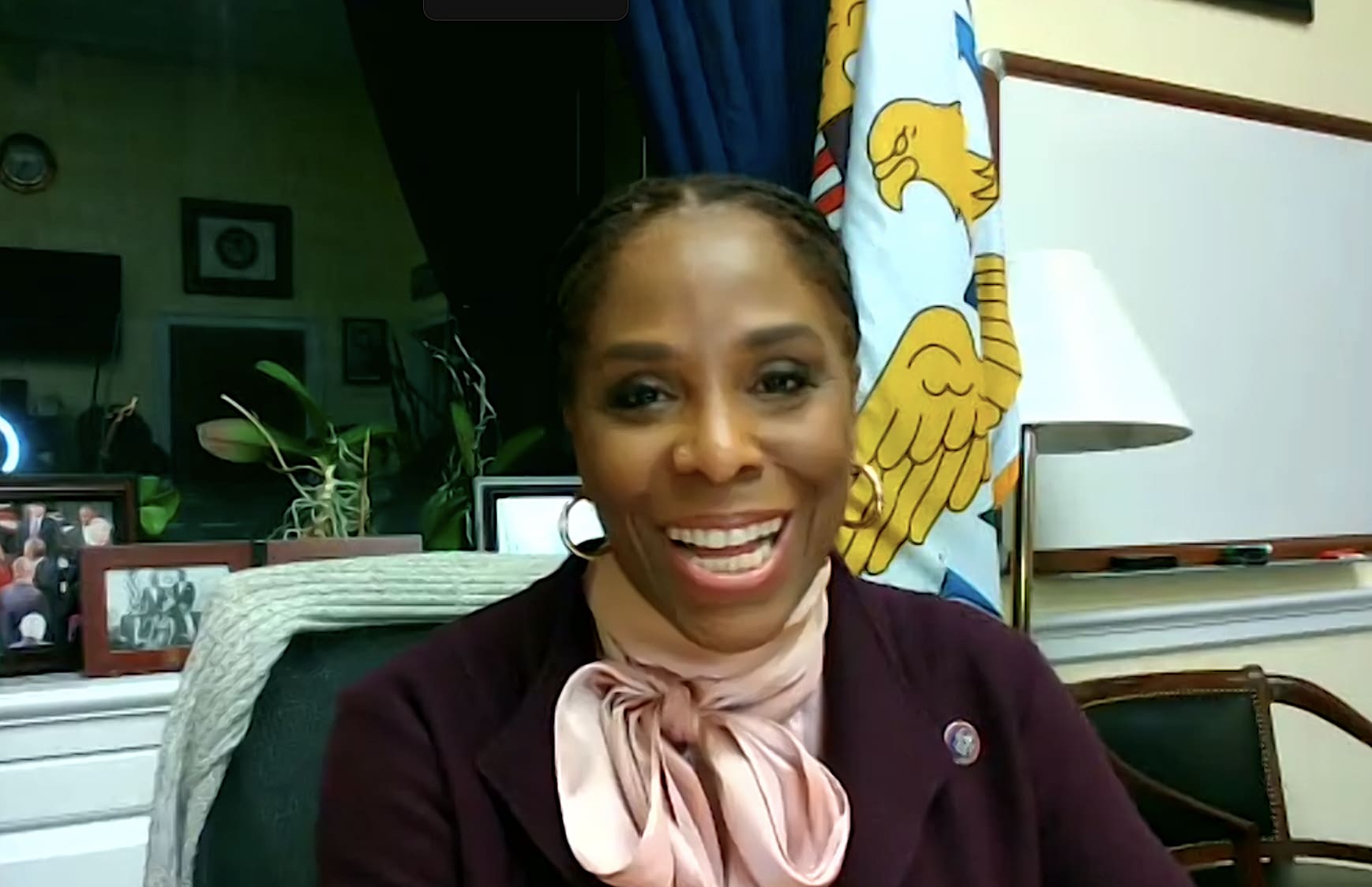
Congressional Delegate Stacey Plaskett has introduced legislation in the House of Representatives that would adopt the amended Revised Organic Act of 1954 as the constitution of the U.S. Virgin Islands, Plaskett’s office said Wednesday.
Plaskett’s bill argues the federal Organic Act is already the territory’s governing document but because it’s never been formally adopted locally, USVI officials are unable to amend it. Taking that power out of Washington and placing it in the hands of Virgin Islands voters, the local Legislature, and future territorial constitutional conventions, enables “a local process for self-determination, and a level of autonomy in our constitutional maturation,” Plaskett wrote in a media statement.
“If the Revised Organic Act and its amendments are adopted as the constitution by federal law, it would then free the Virgin Islands to make further amendments without congressional engagement or approval,” she said of her bill introduced Friday.
Gov. Albert Bryan Jr. said he supported the measure as well as a new constitutional convention.
“The ability for Virgin Islanders to establish and amend our own governing document without petitioning the Congress is long overdue and paramount to our right to self-determination,” Bryan told the Source late Wednesday.
The Virgin Islands has launched five constitutional conventions since 1964 and a sixth was authorized late last year in a bill co-sponsored by Genevieve Whitaker.
Whitaker, an editor for the Fifth Constitutional Convention’s final document, said the blueprint a sixth constitutional convention might start with was much more advanced than the Organic Act.
“The revised Organic Act of 1954 is quite colonial,” she said Wednesday afternoon. “The Fifth Constitutional Convention document is quite expansive. It’s a shift away from colonialism in terms of promotion of self-governance.”
Normally successive conventions are duty-bound to start with the previous convention’s final document. If, however, Congress were to pass Plaskett’s measure and it were signed into law by President Joe Biden, it was unclear what role the Fifth Convention’s paper might play.
Whitaker acknowledged the territory was essentially living under the Organic Act already but it may change the perspective of convention delegates if their votes were amending the official law of the land.
“The difference is they would be starting with the Virgin Islands Constitution to amend,” she said.
Not everyone was a believer in what the Fifth Convention ended with. Some said future conventions were a waste of time. Others were frustrated with discord that kept the territory from forming its own constitution.
In 2020, 72 percent of Virgin Islanders voting chose a plan to adopt the Organic Act.
Plaskett quoted several of the territory’s constitutional experts in her release on the bill.
Gerard Emanuel, a delegate to the Fifth Constitutional Convention, said the USVI had failed to approve many draft constitutions and would likely never agree on one.
“Based on the increasing diversity of our population, almost anything placed in a constitution will be opposed by some segment of the voters,” Emanuel said.
Virgin Islands scholar Malik Sekou said adopting the Organic Act and moving forward would be a positive step.
“Congress ought to provide funding to allow public awareness campaigns to ensure that all residents and even the diaspora become informed of this issue,” Sekou was quoted as saying in Plaskett’s statement. “We make history when we make wise decisions.”
Another Virgin Islands educator, Verdel Petersen, also professed her support for Plaskett’s bill.
“Congress has the authority to approve, modify or amend any constitutional draft that has been adopted by a constitutional convention. Since the Virgin Islands of the United States has unofficially adopted the Revised Organic Act of 1954 for almost seven decades, this is a clear indication that the majority of USVI electorates would not object to it becoming our constitution. This is the will of the people,” said Petersen.


